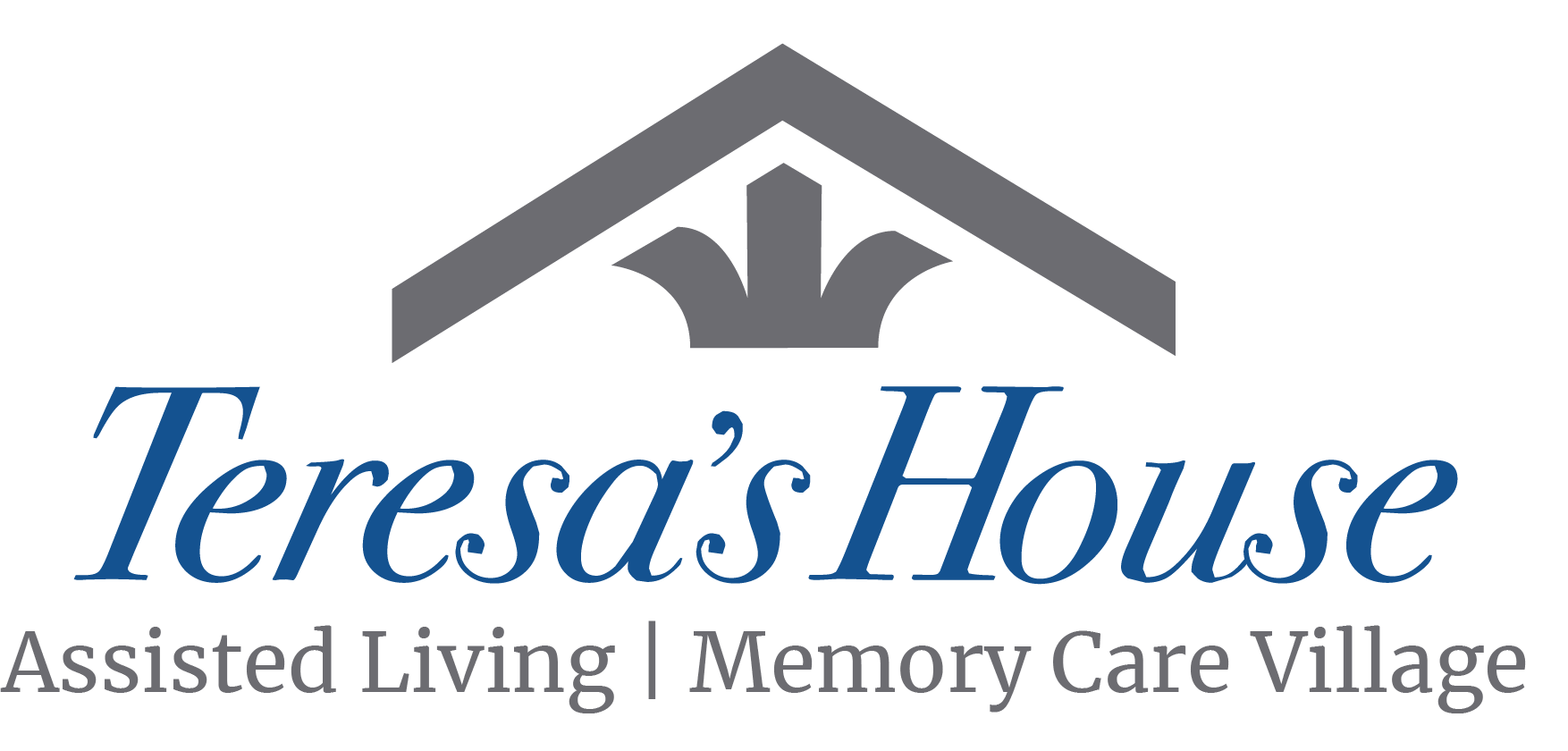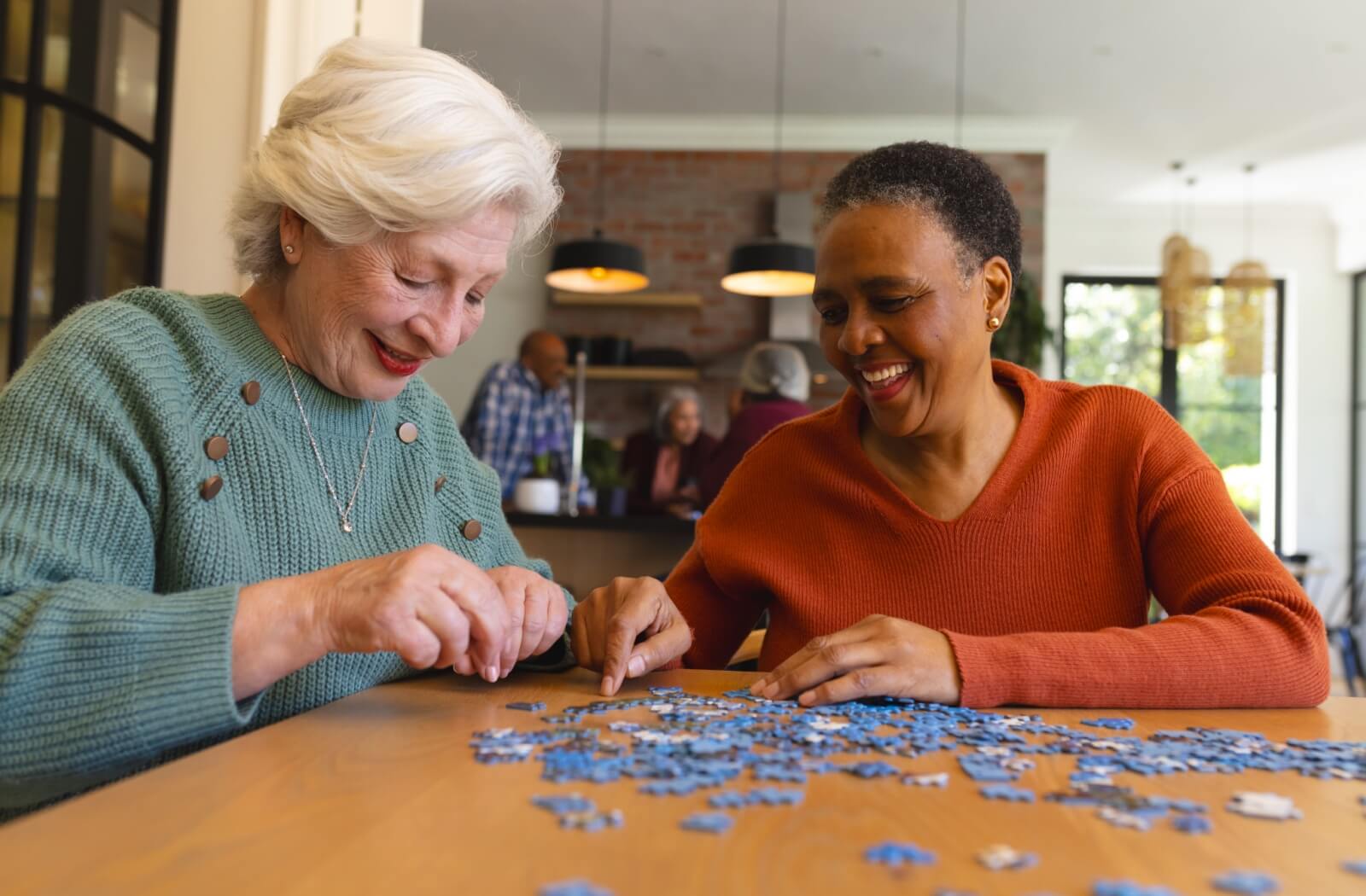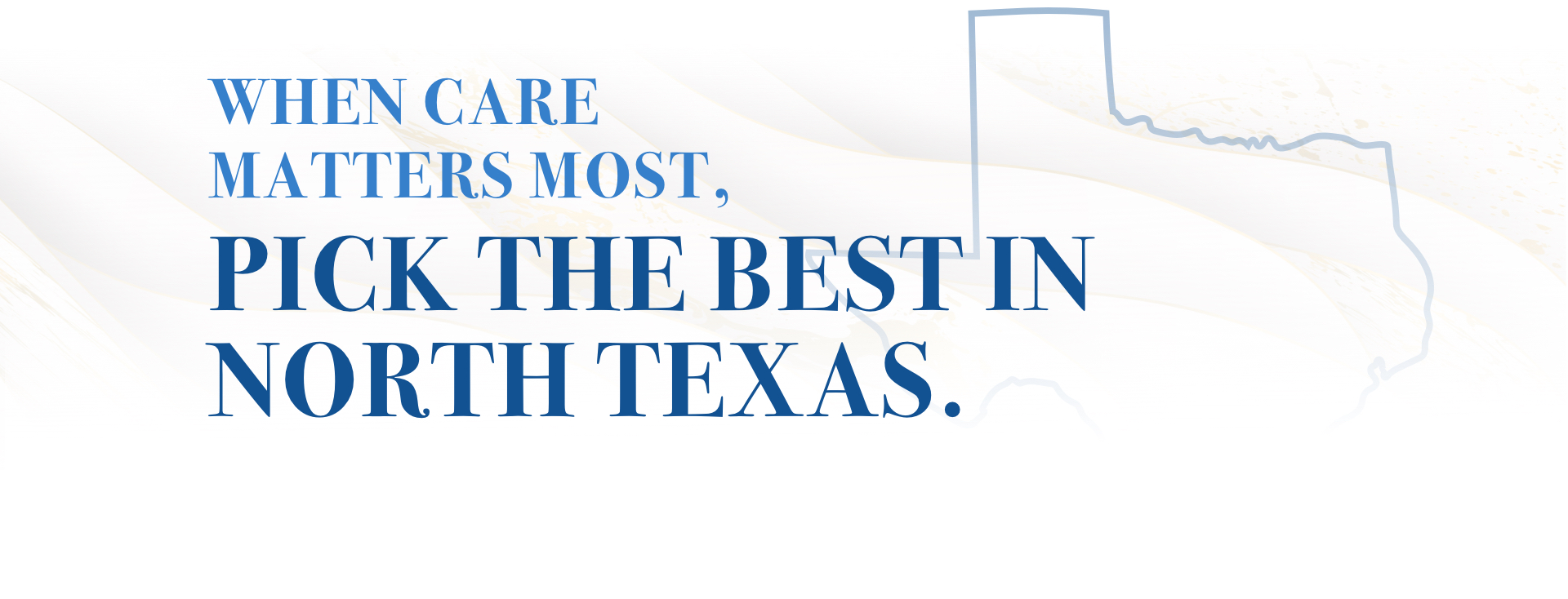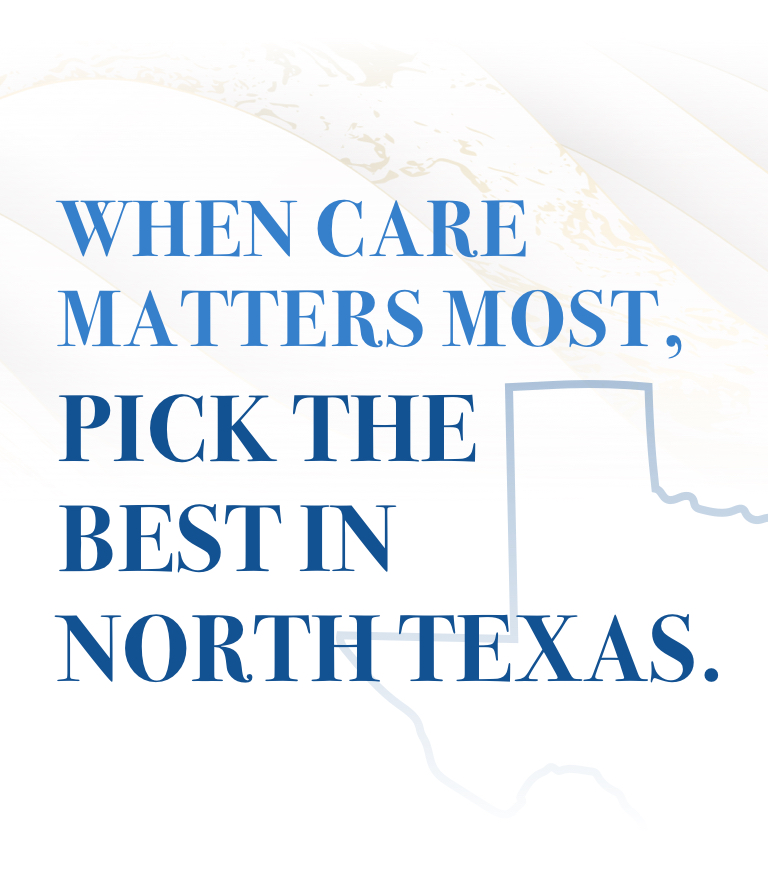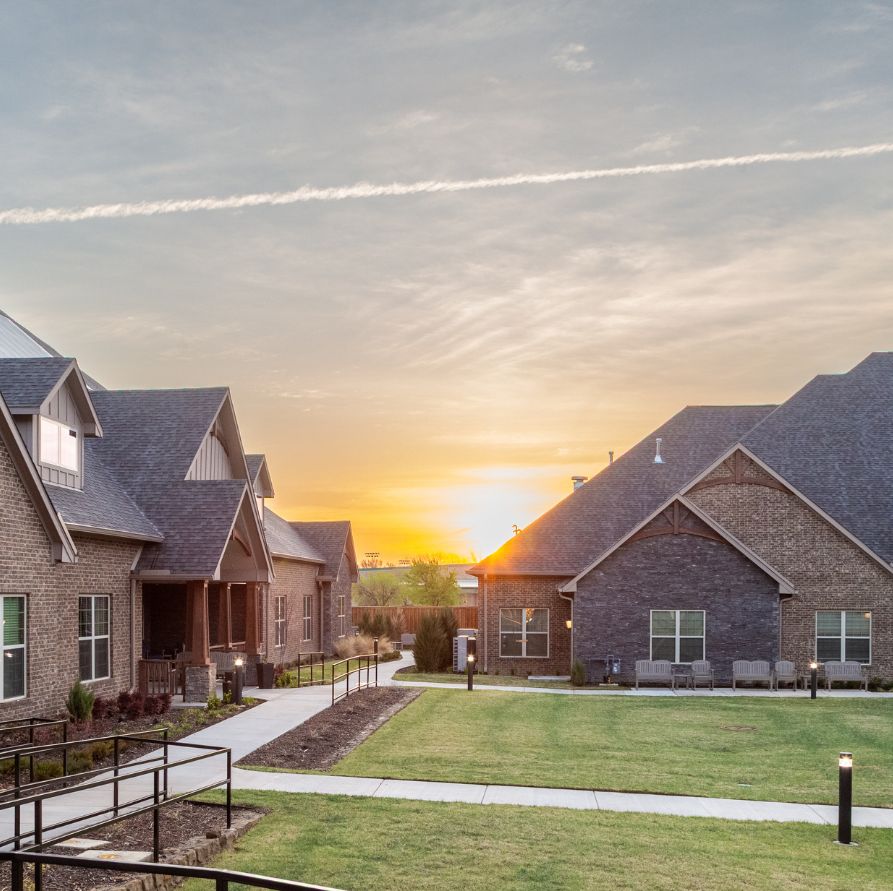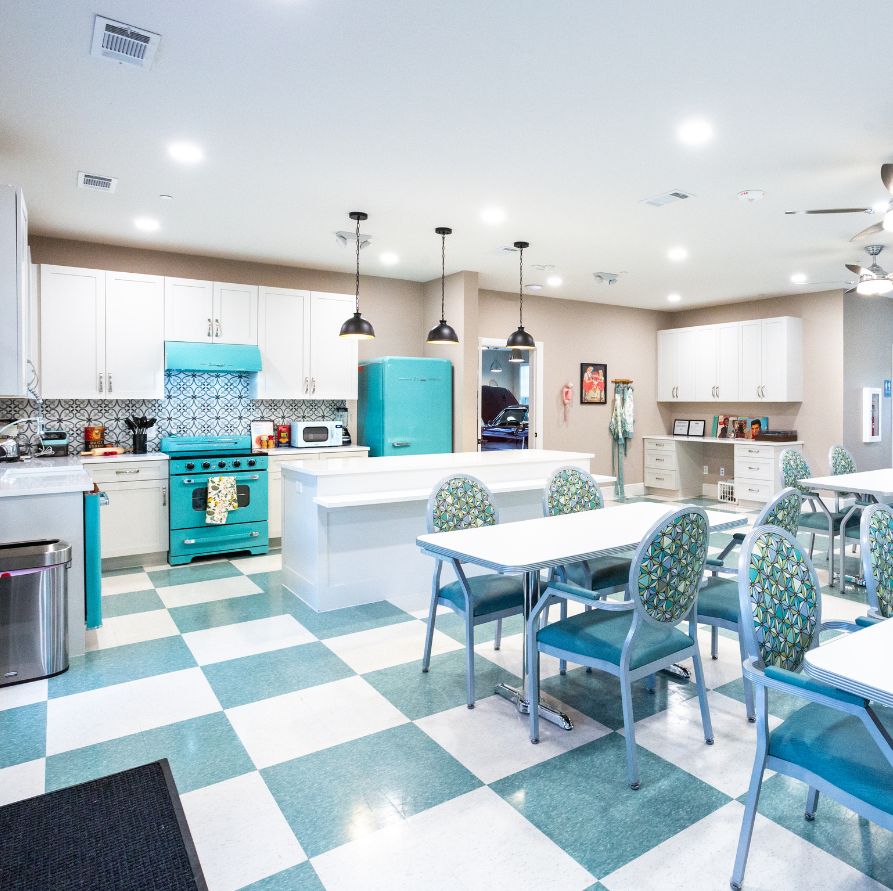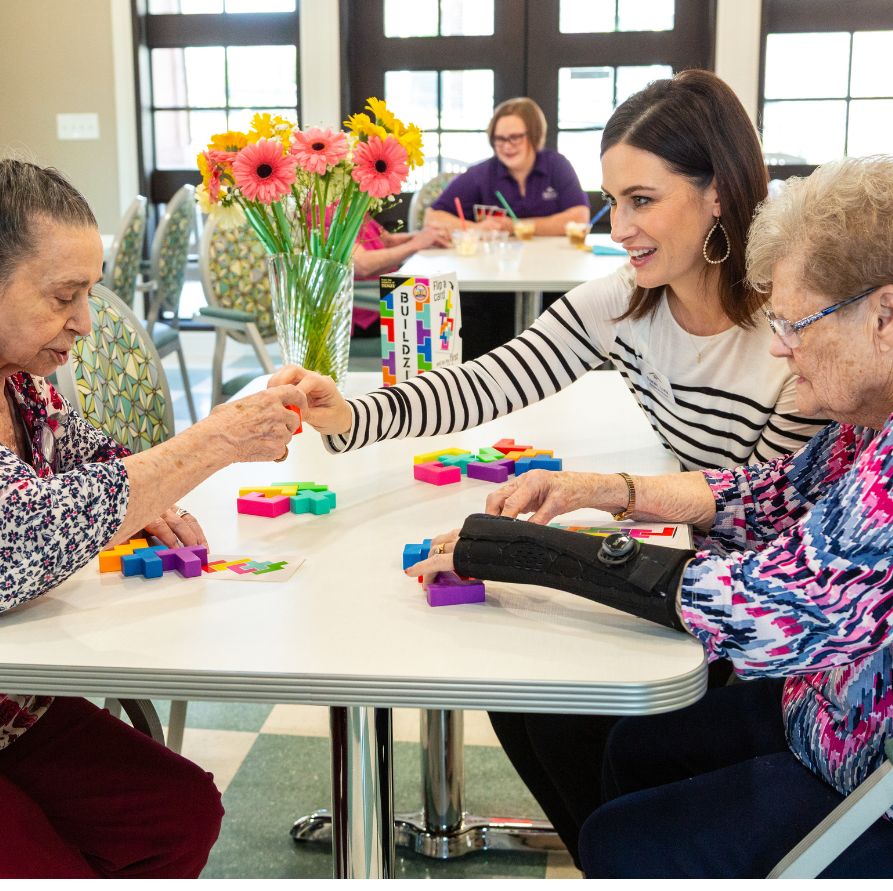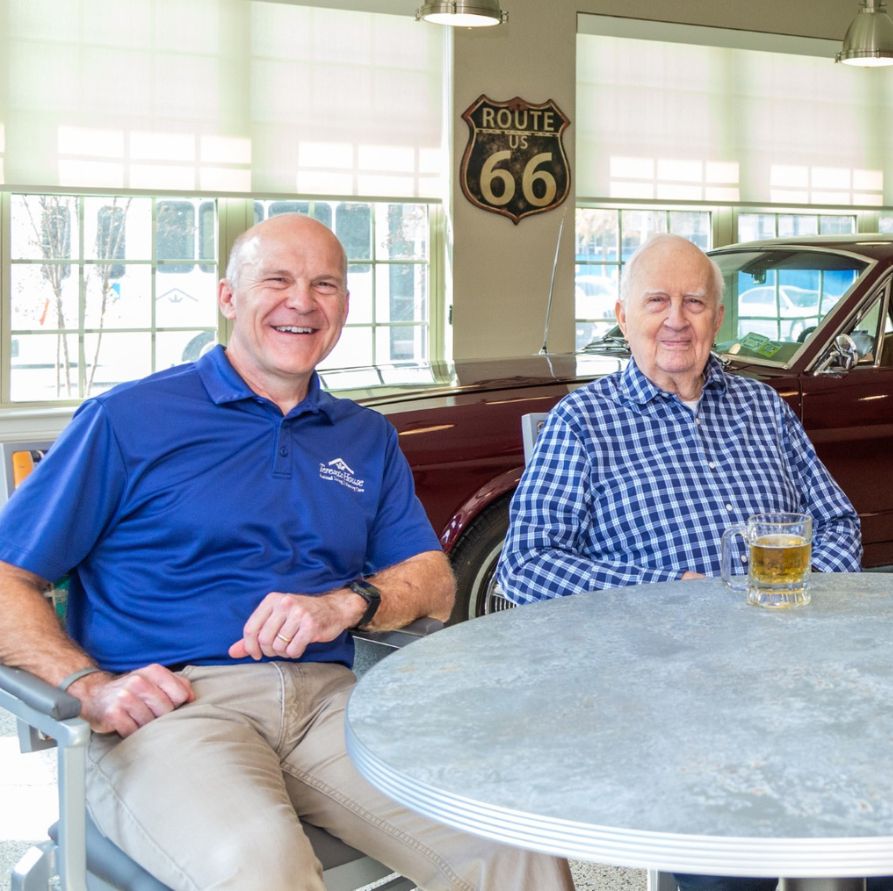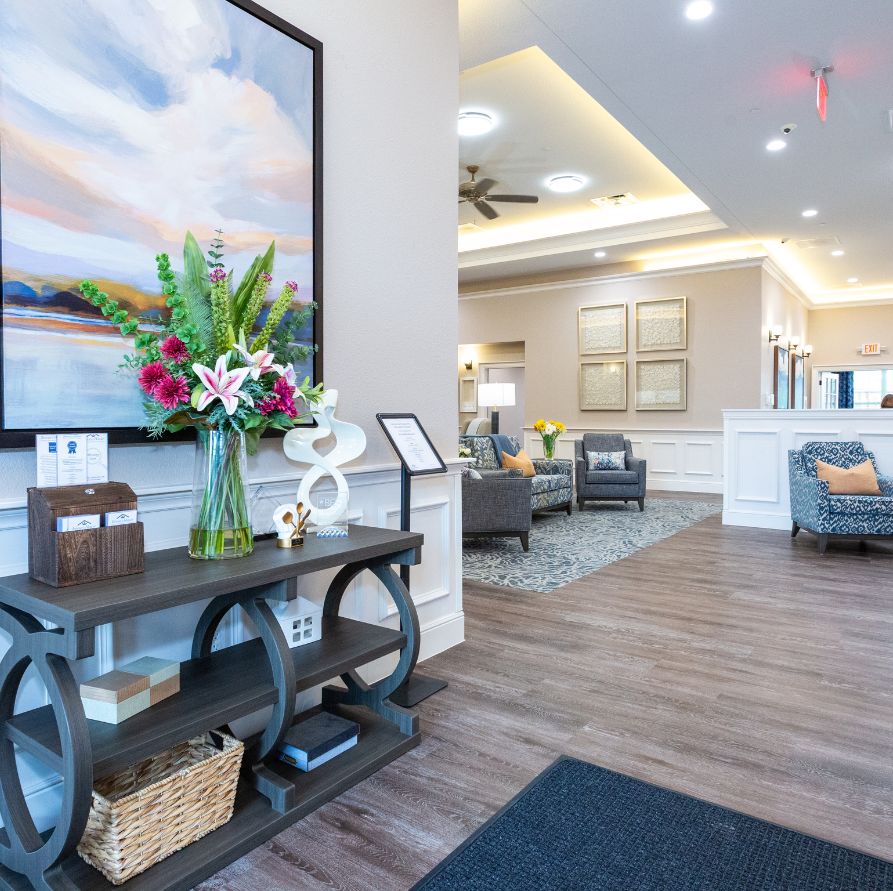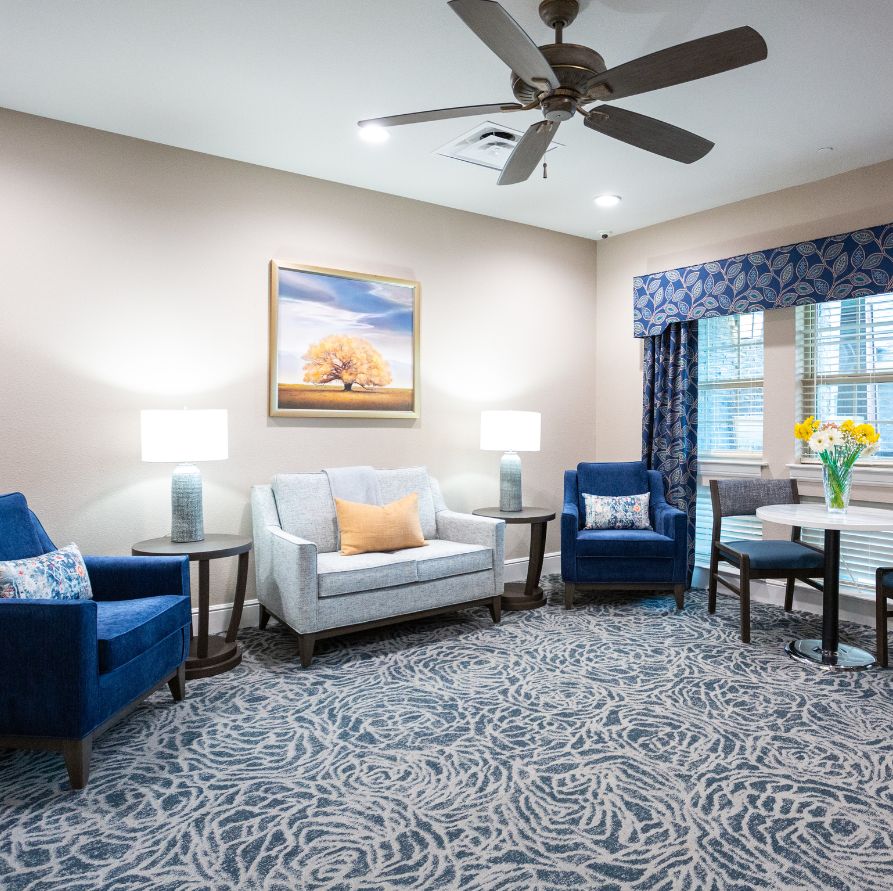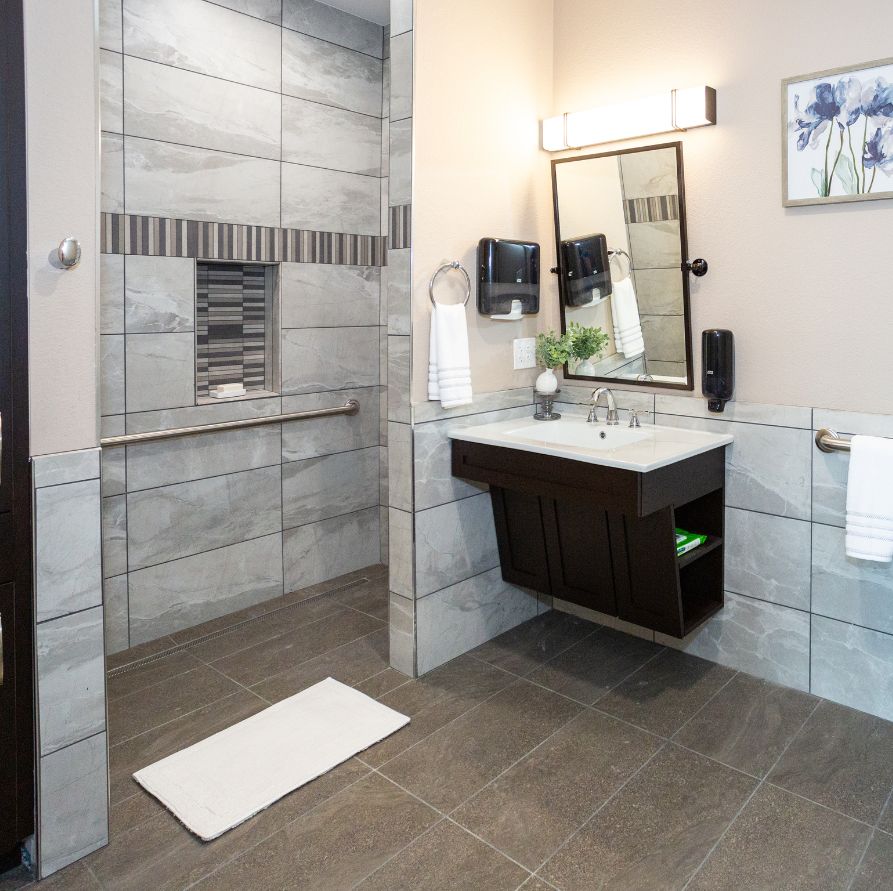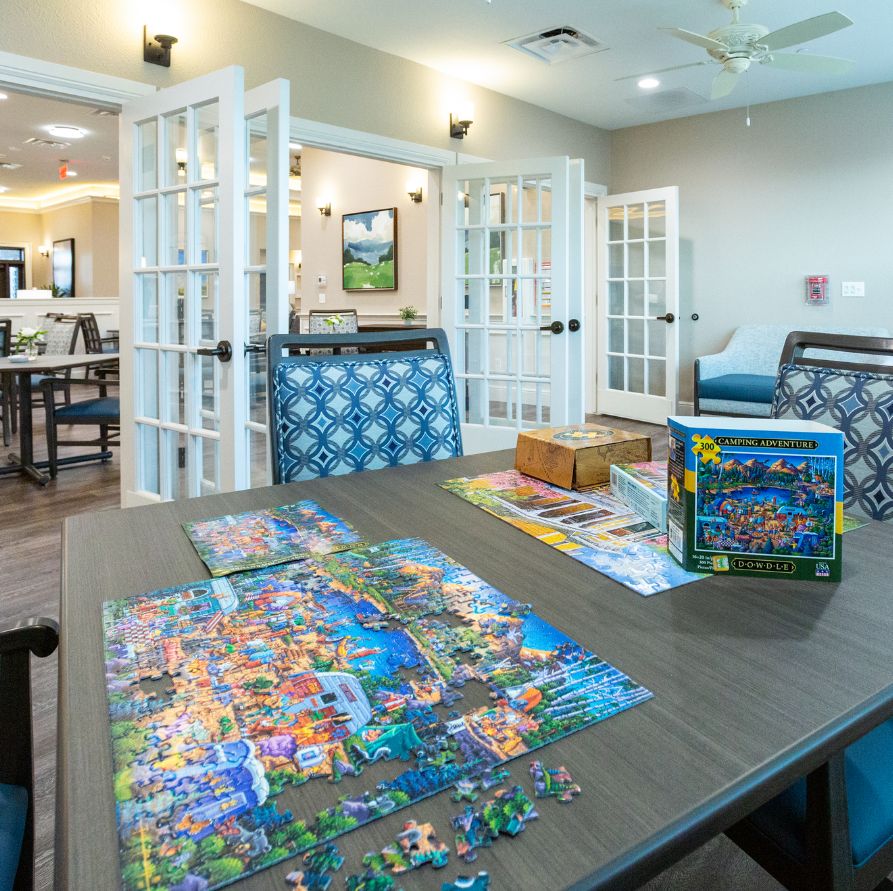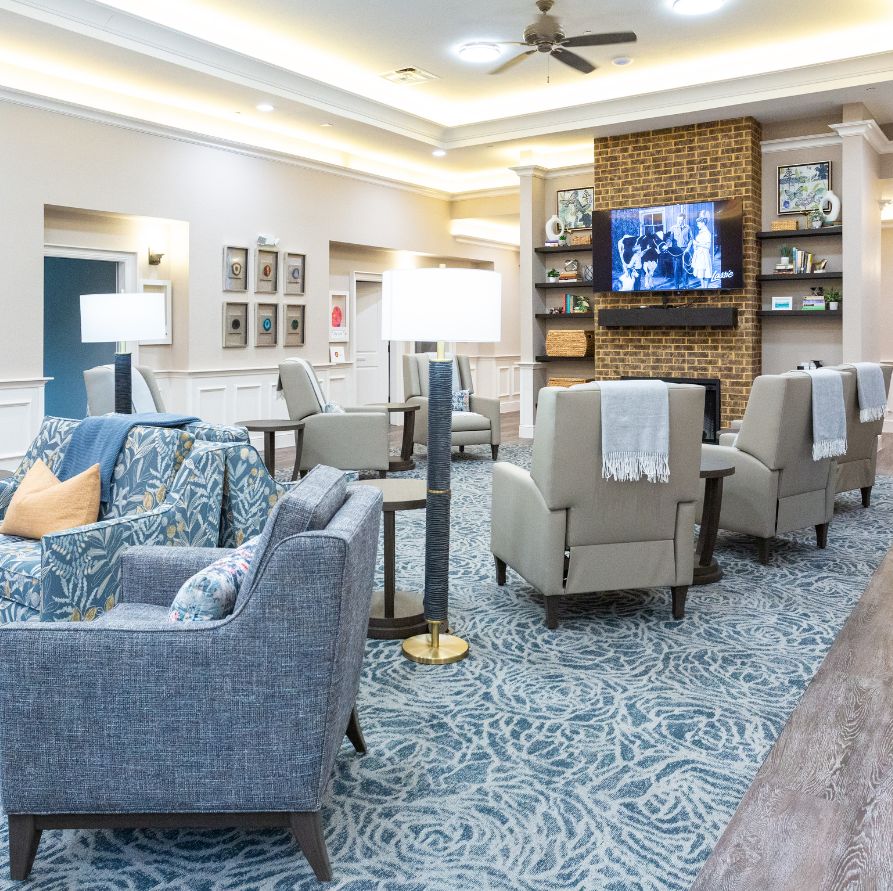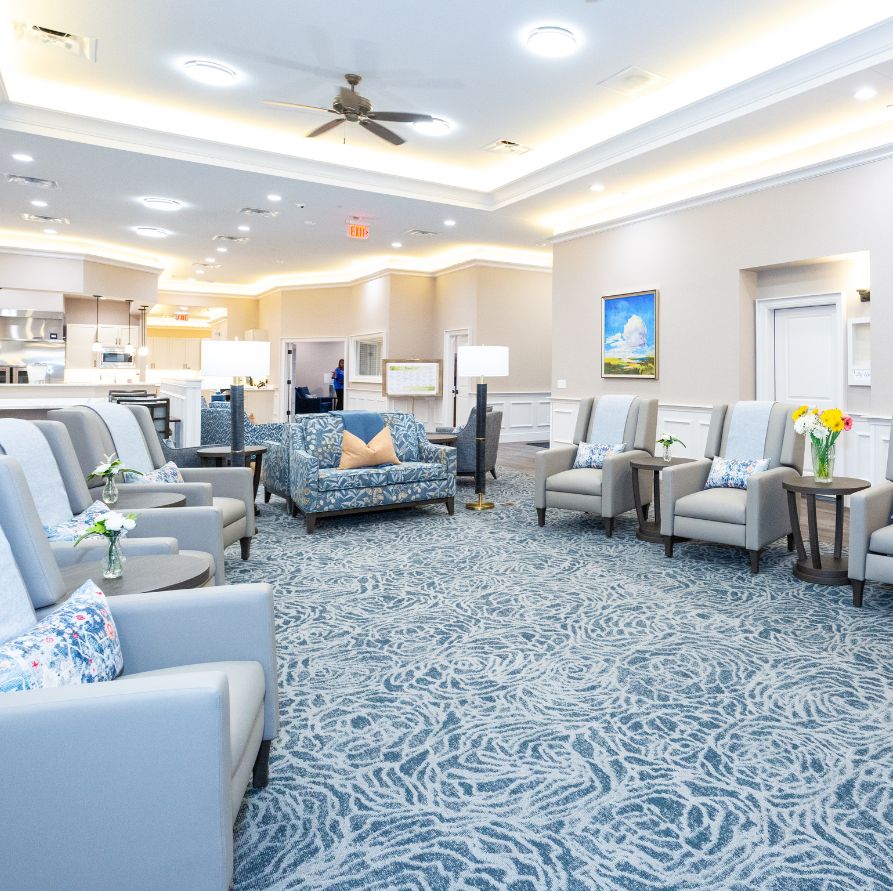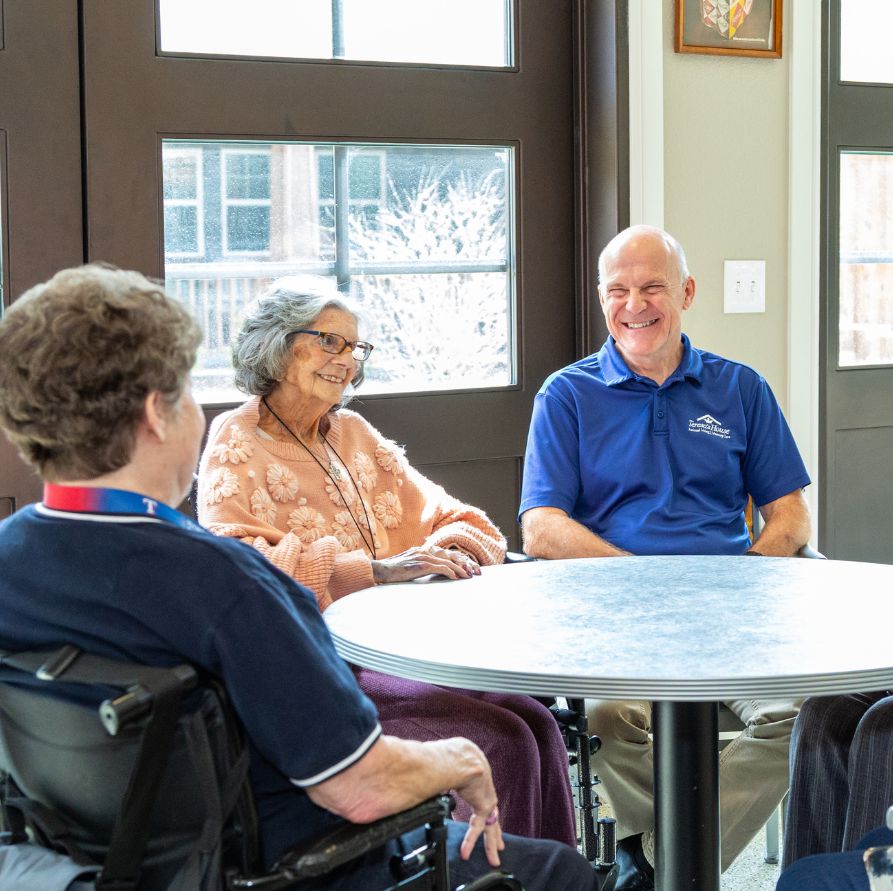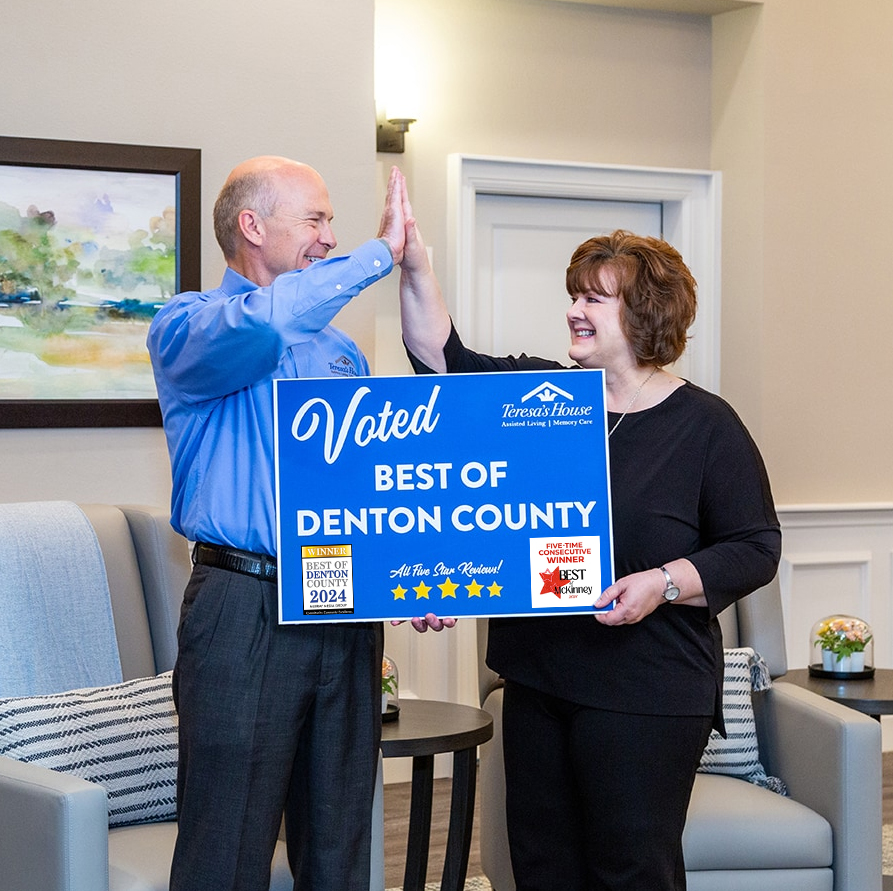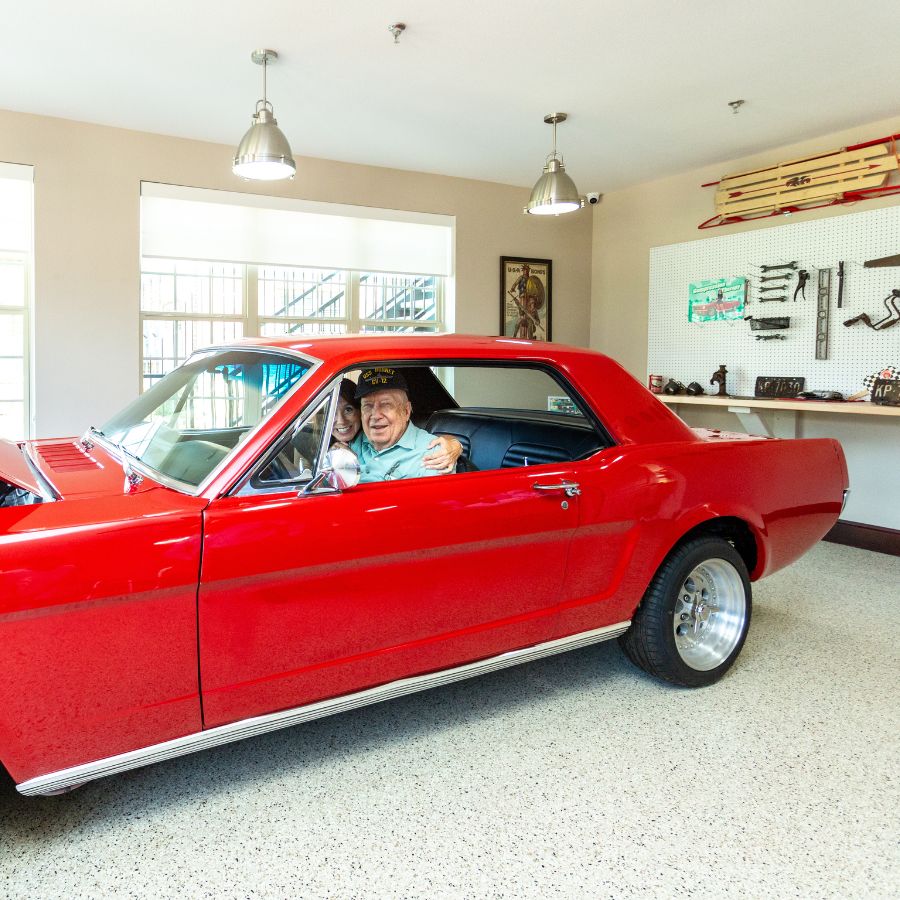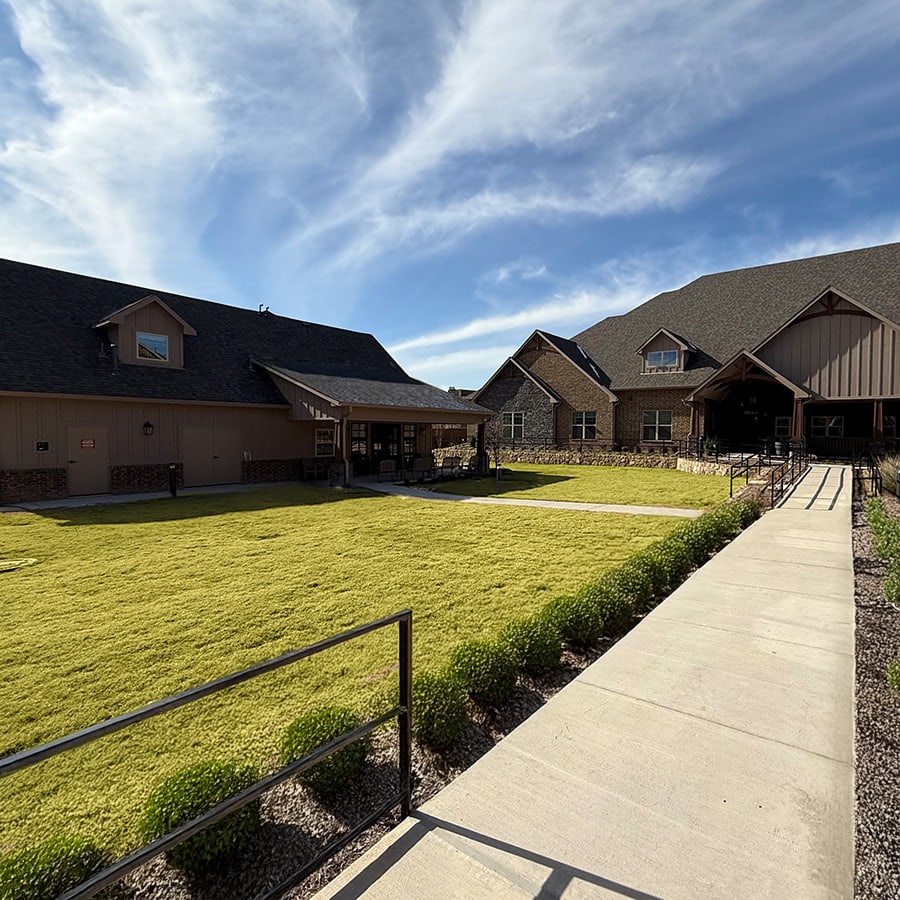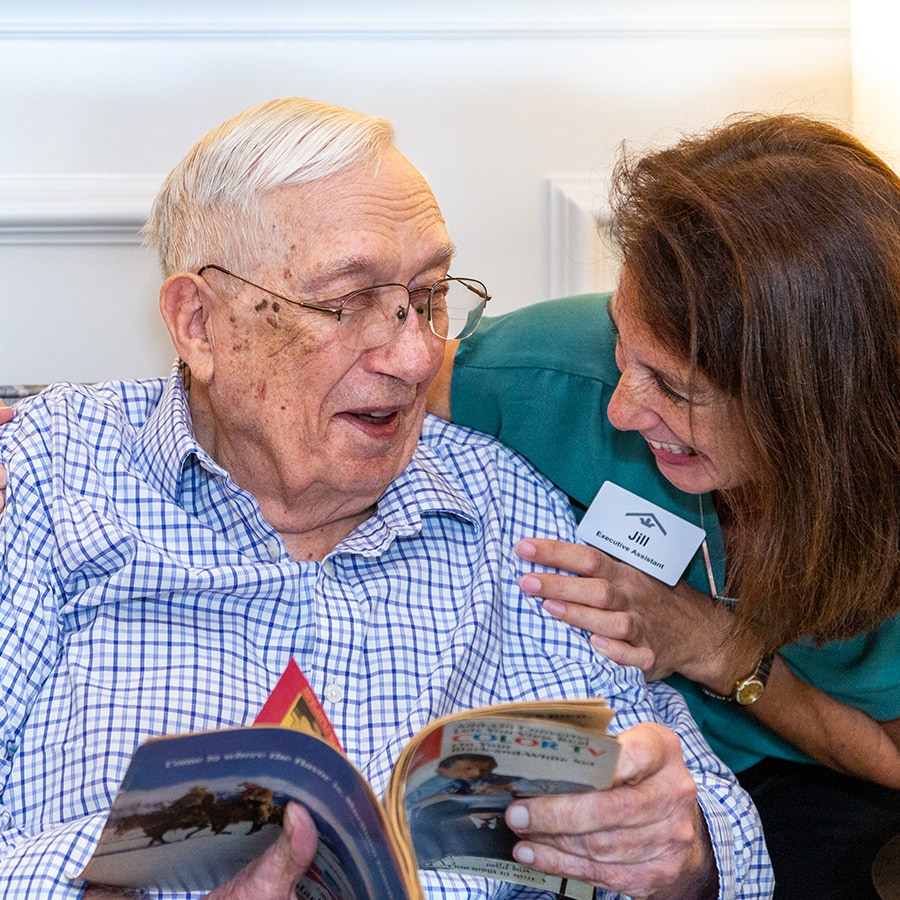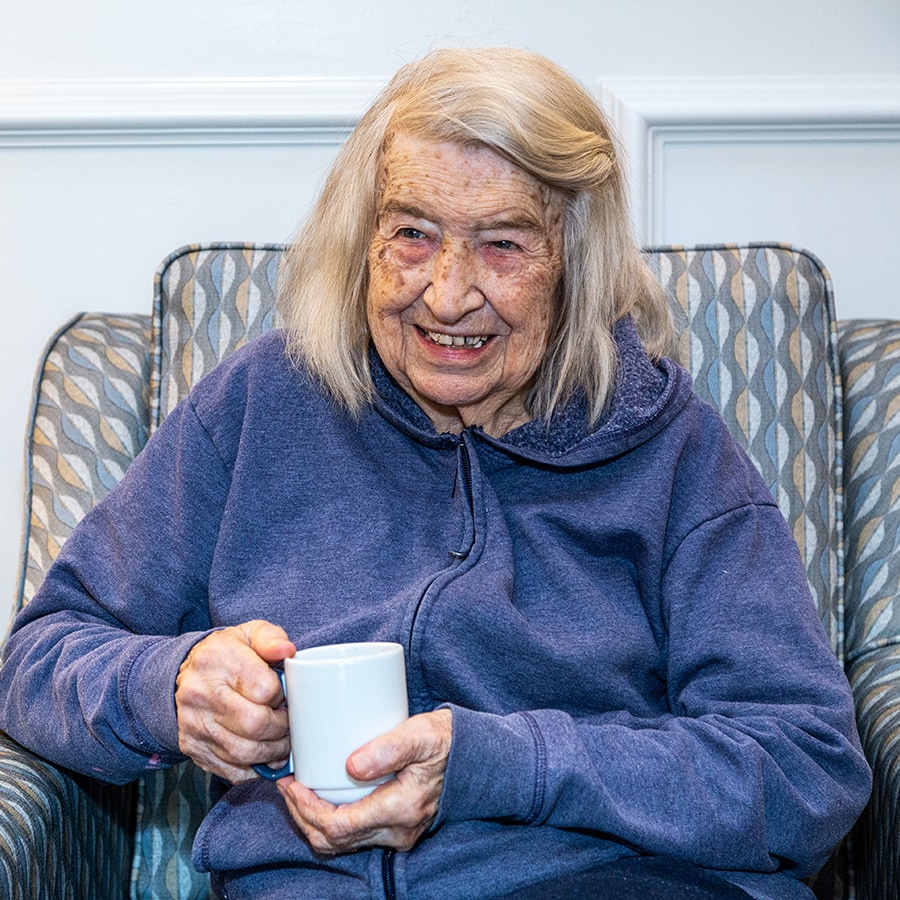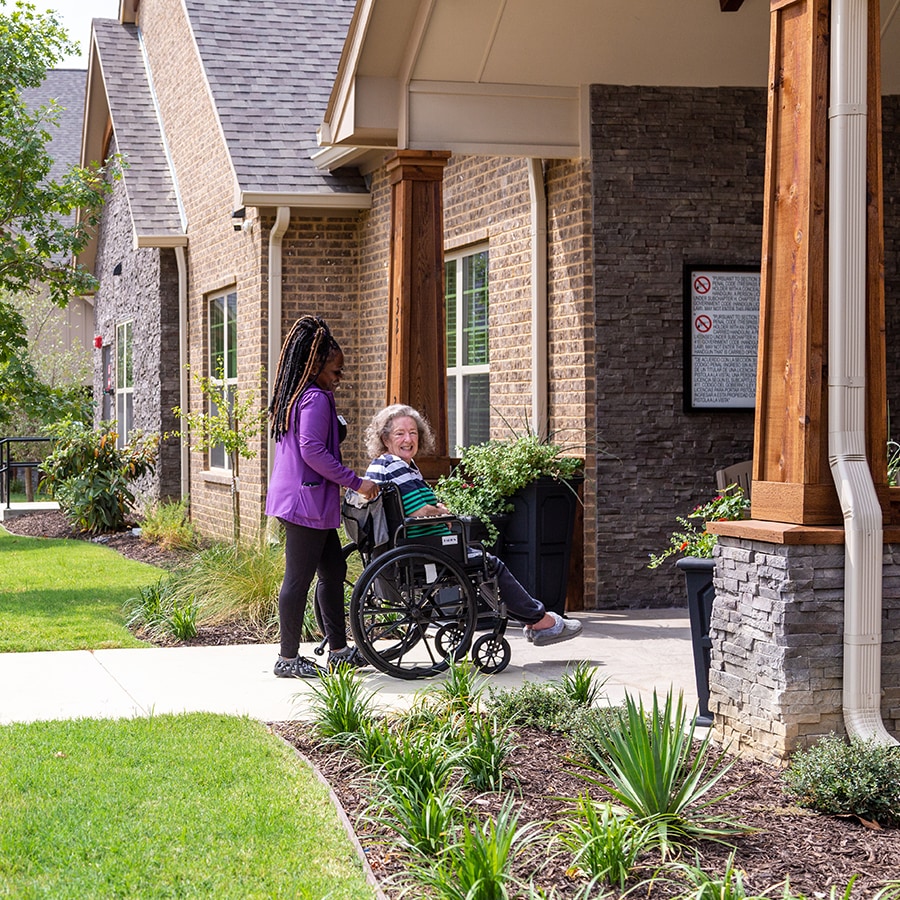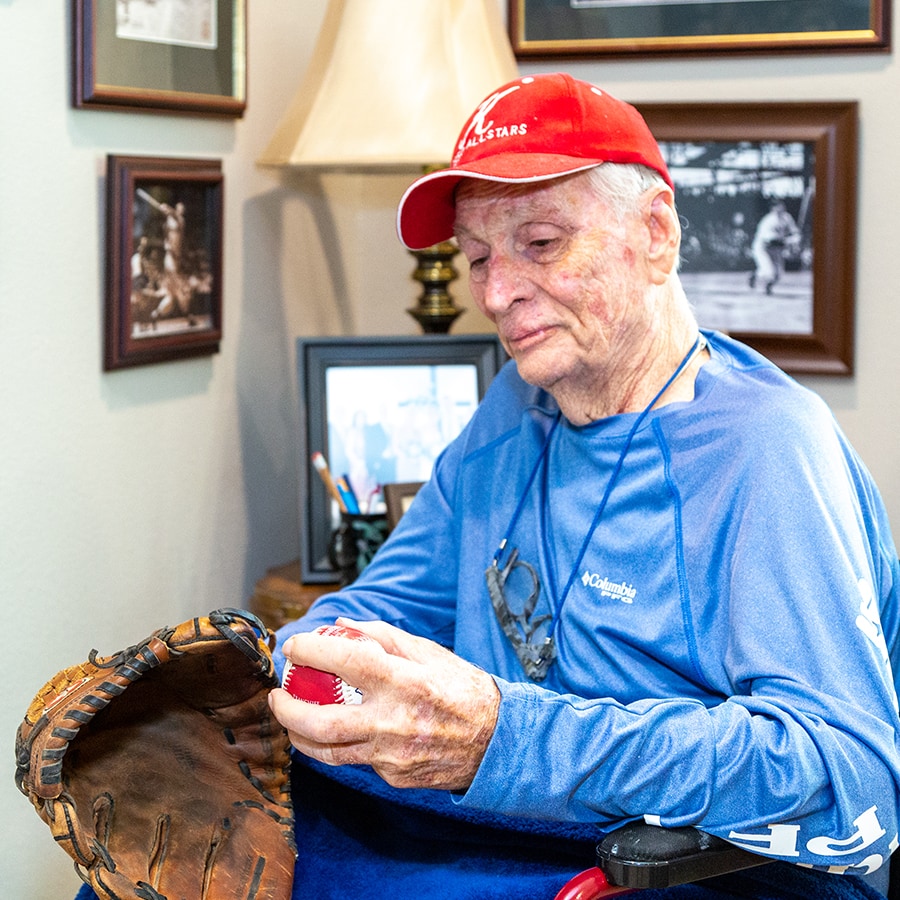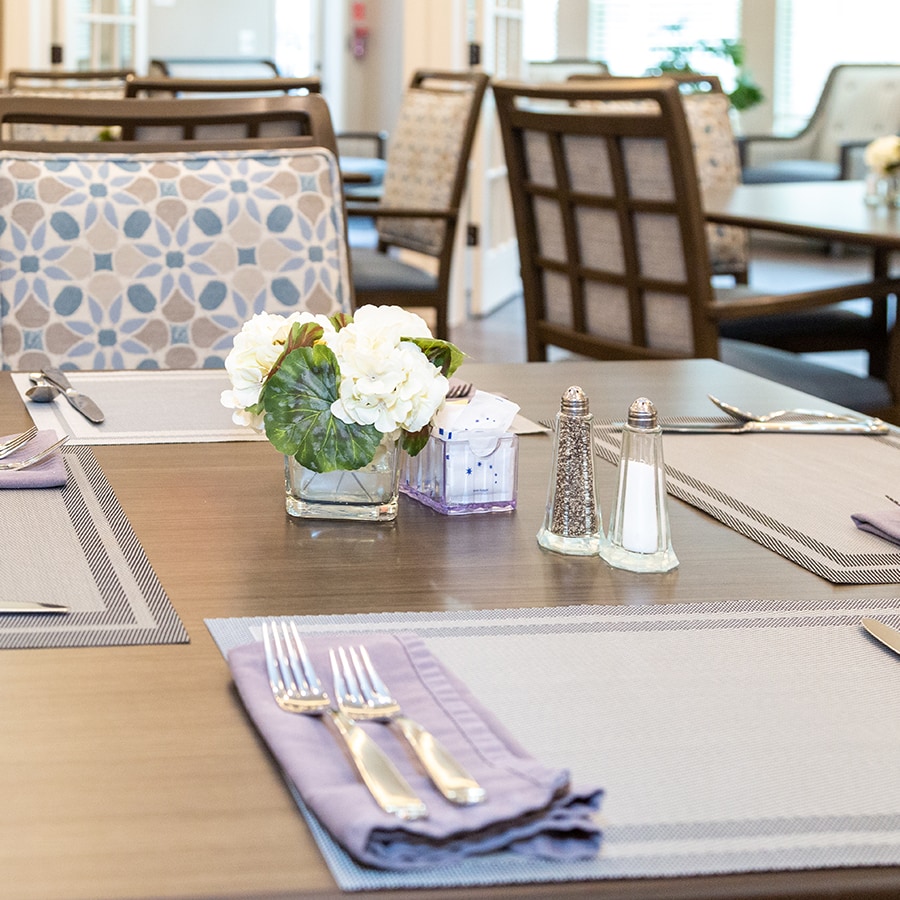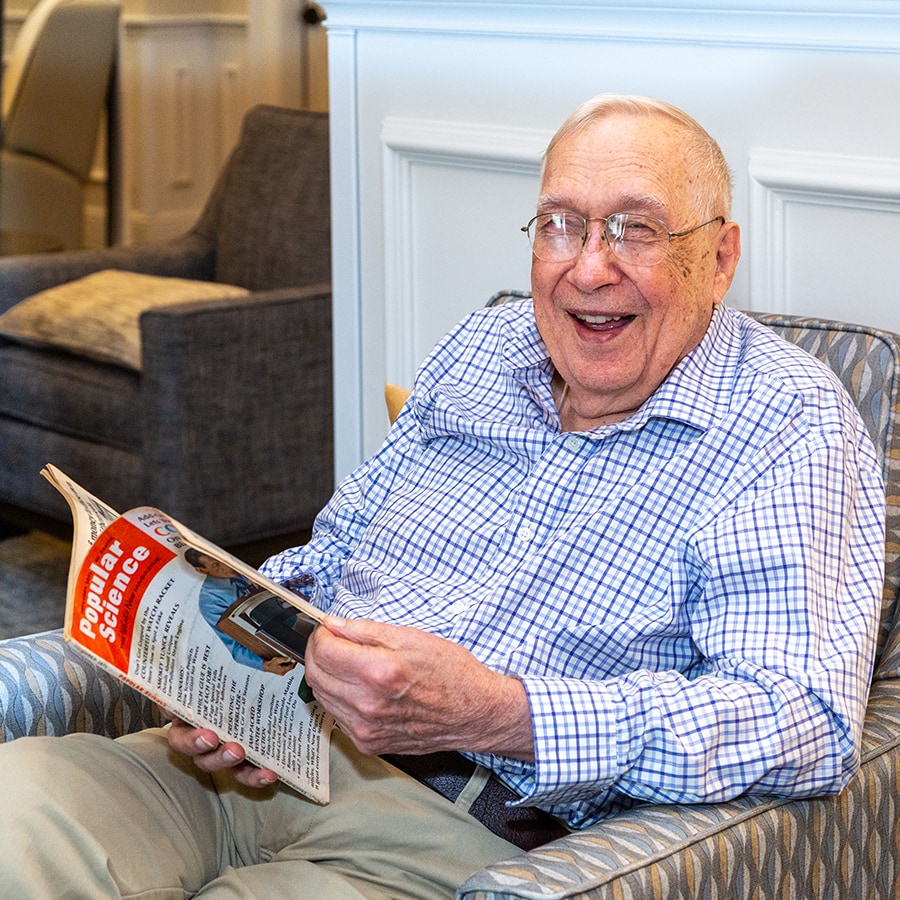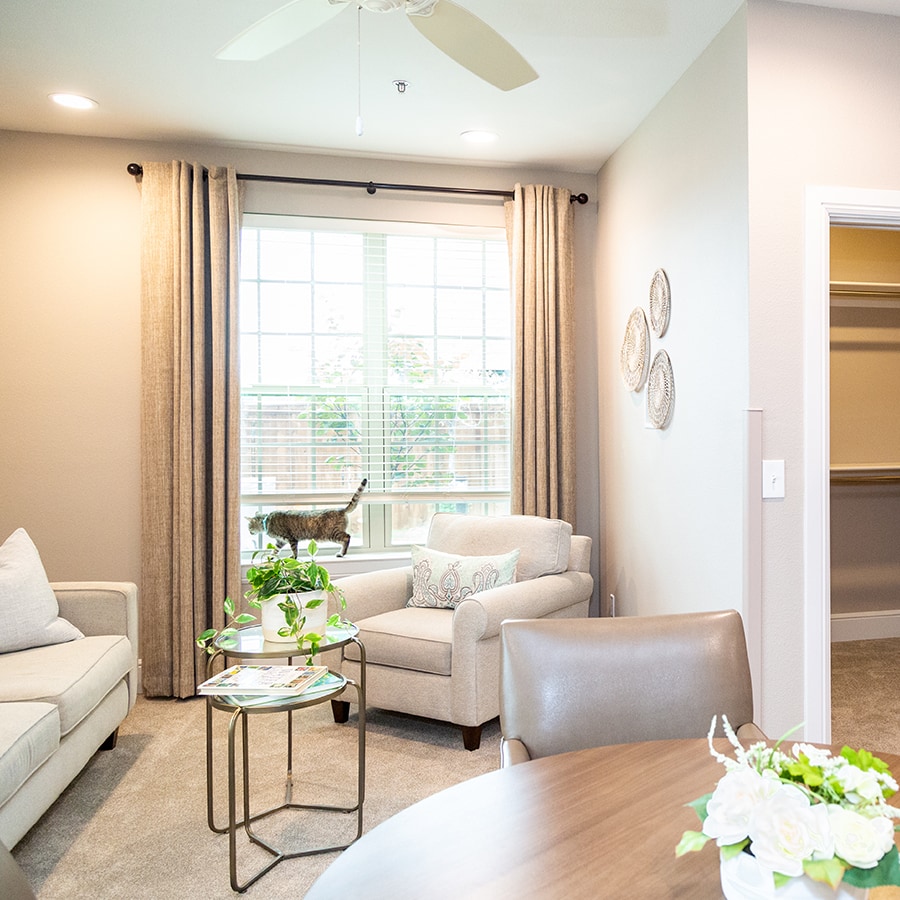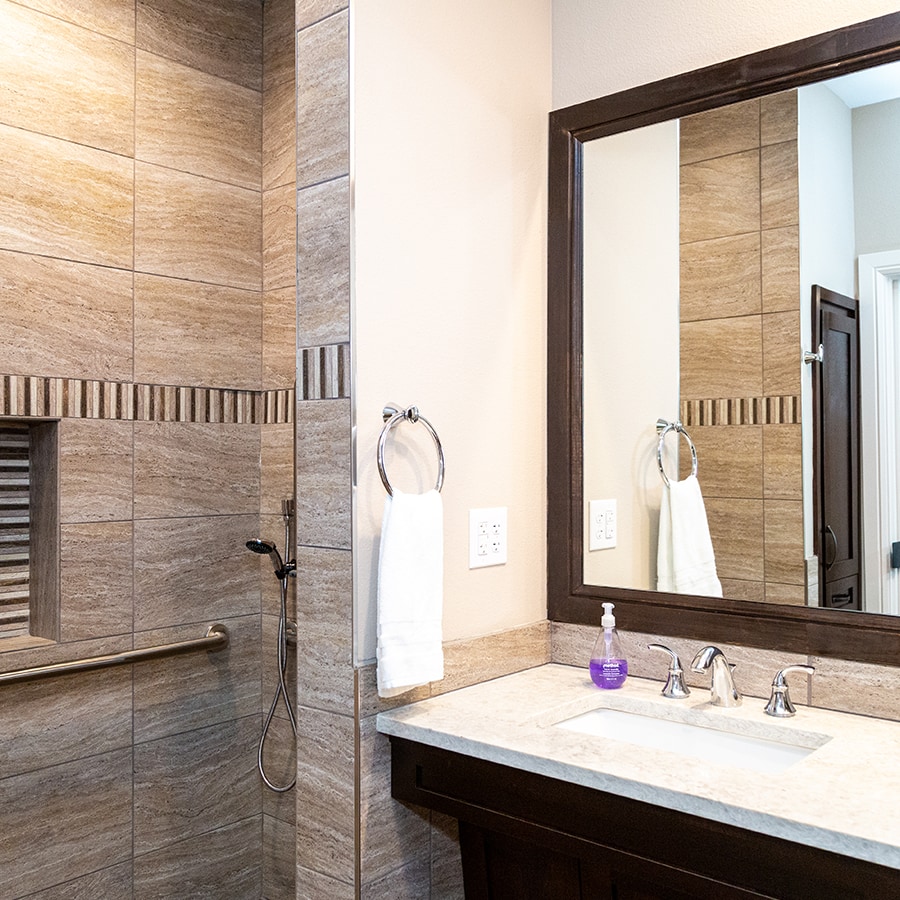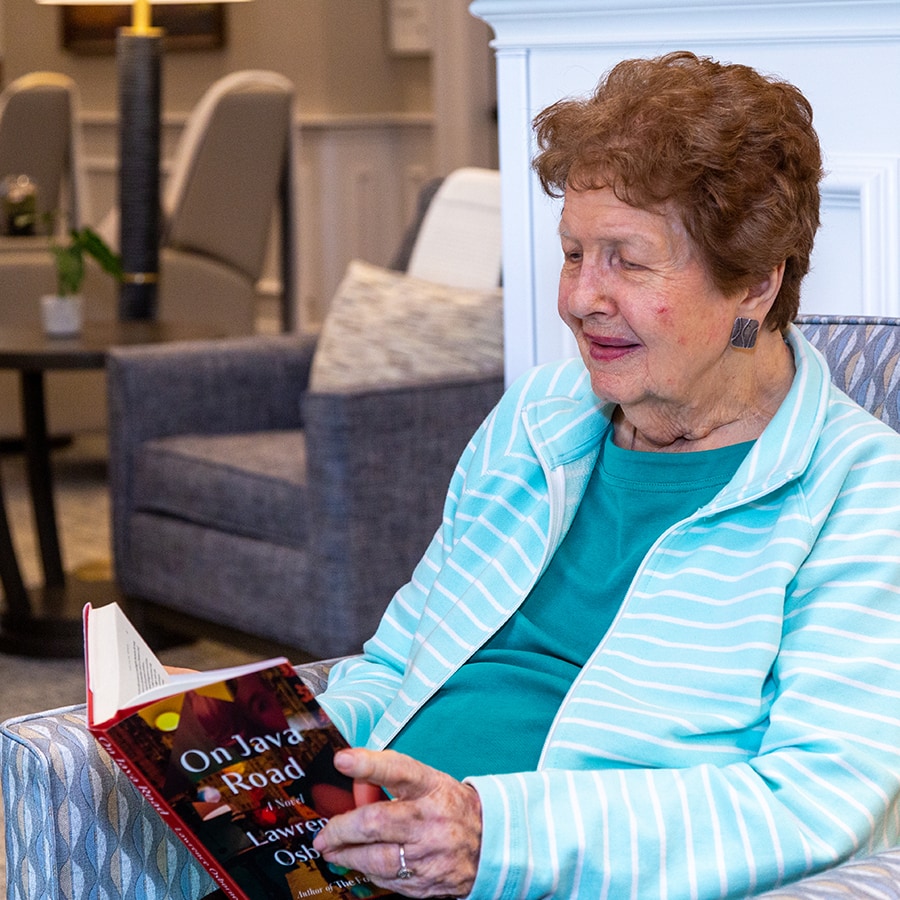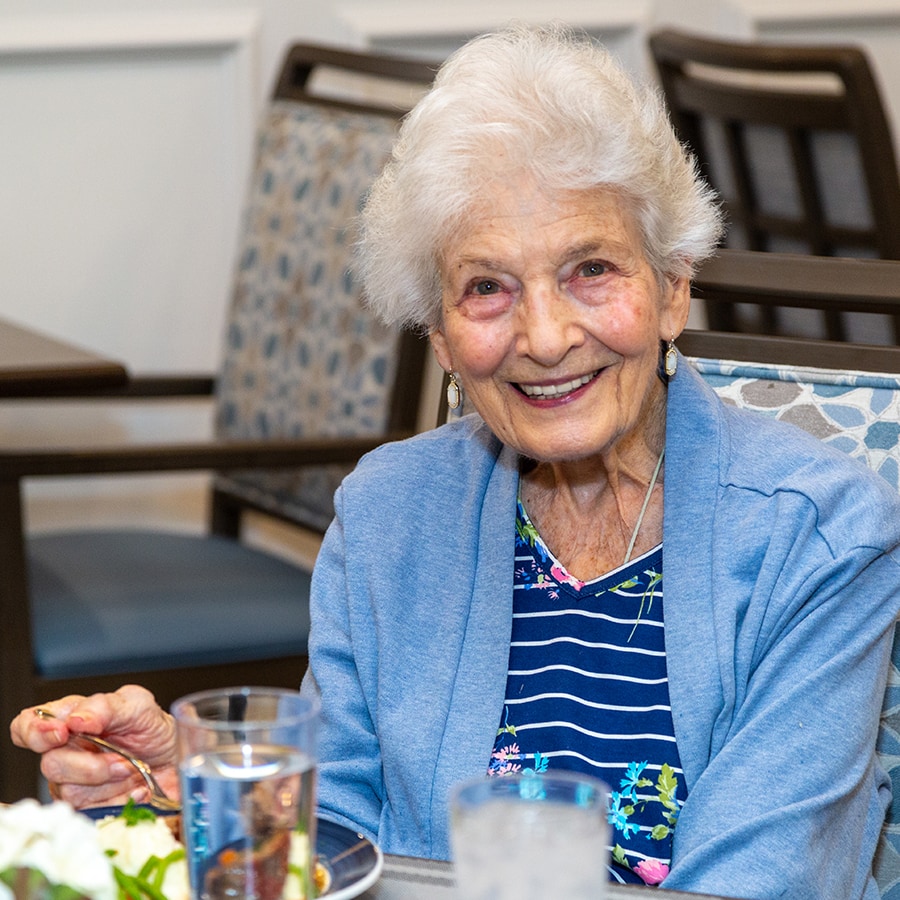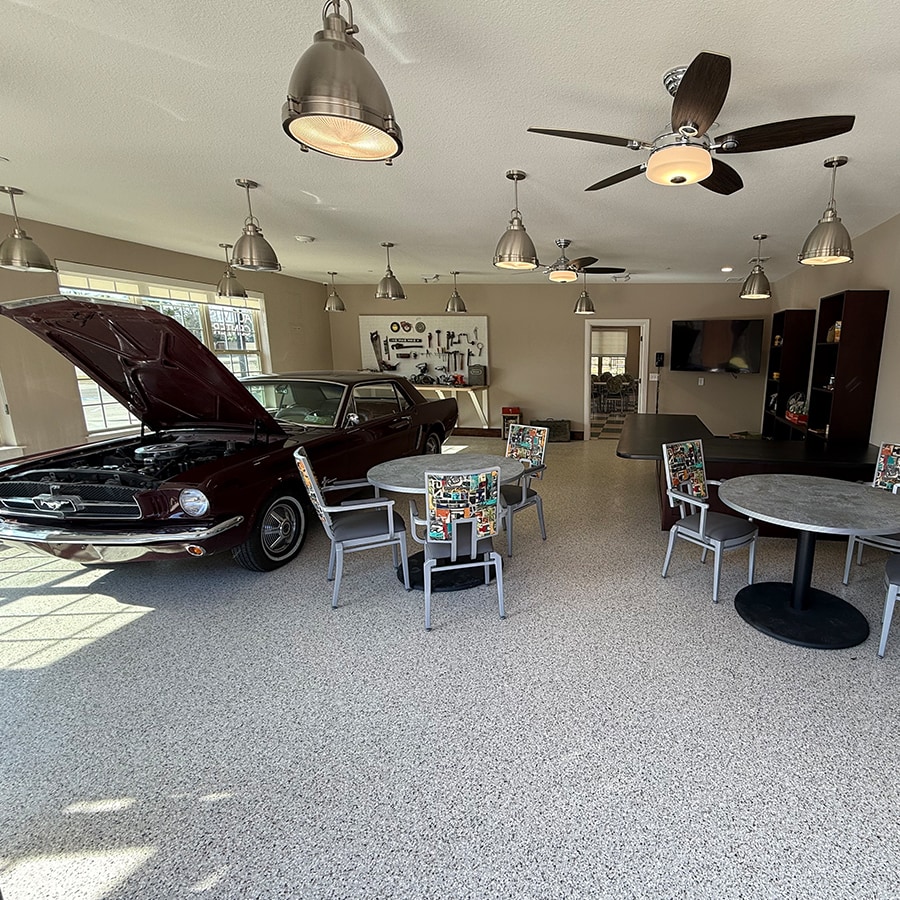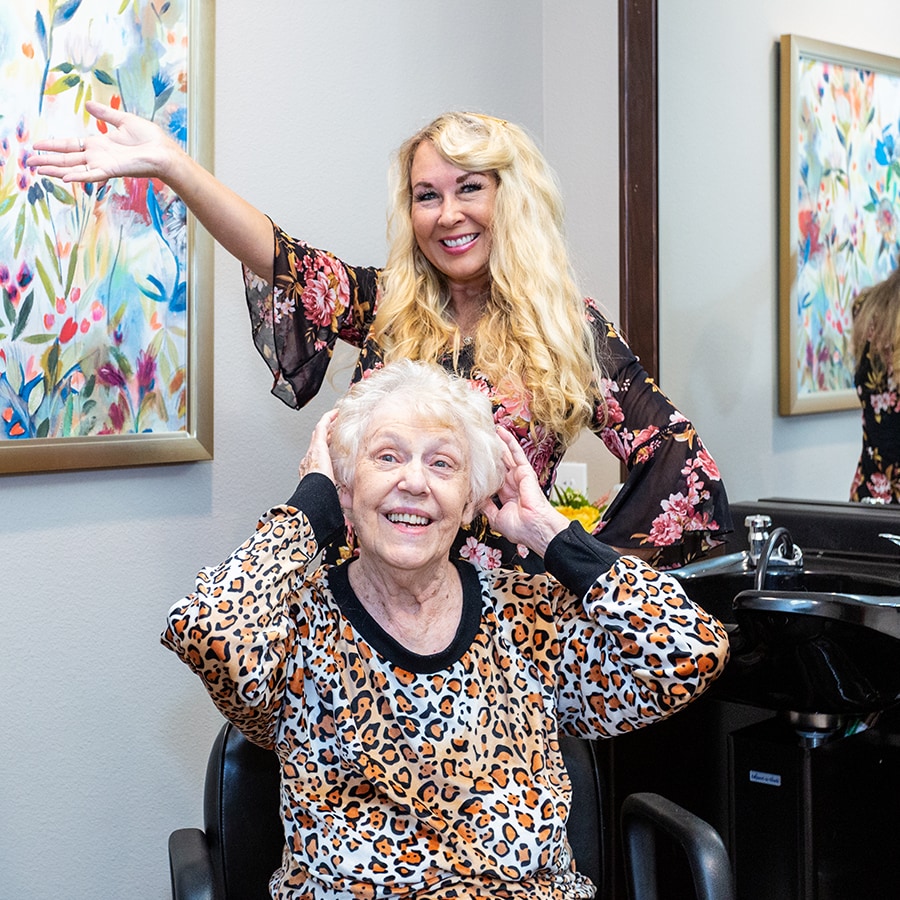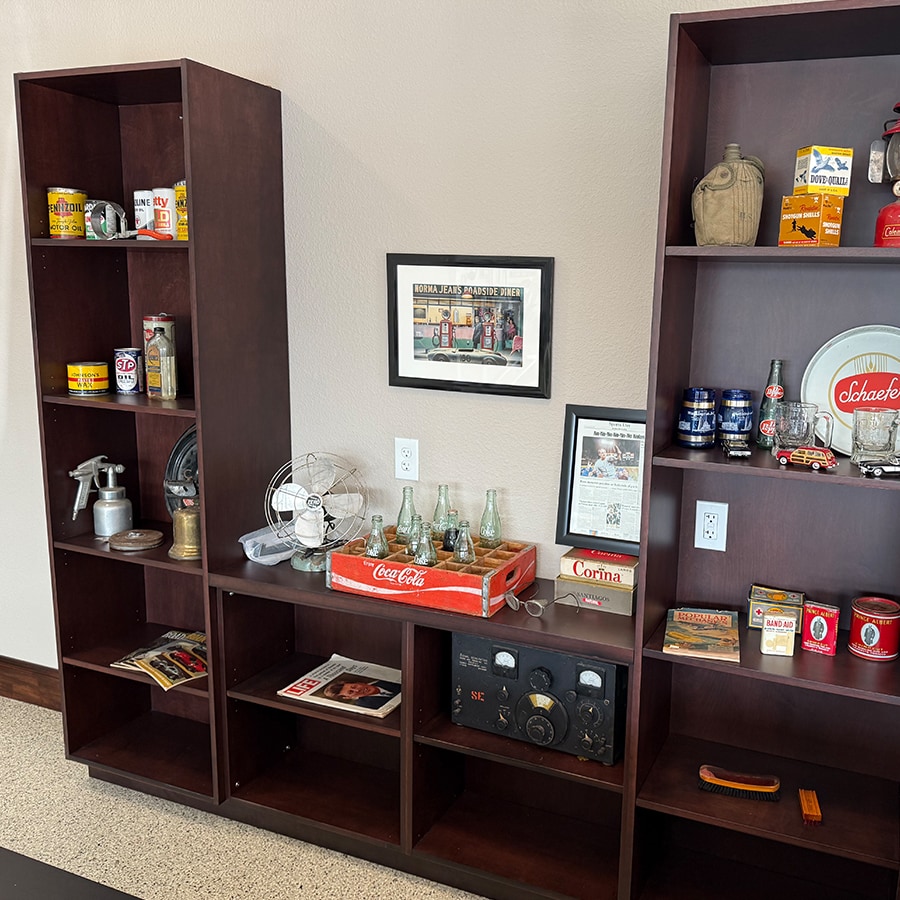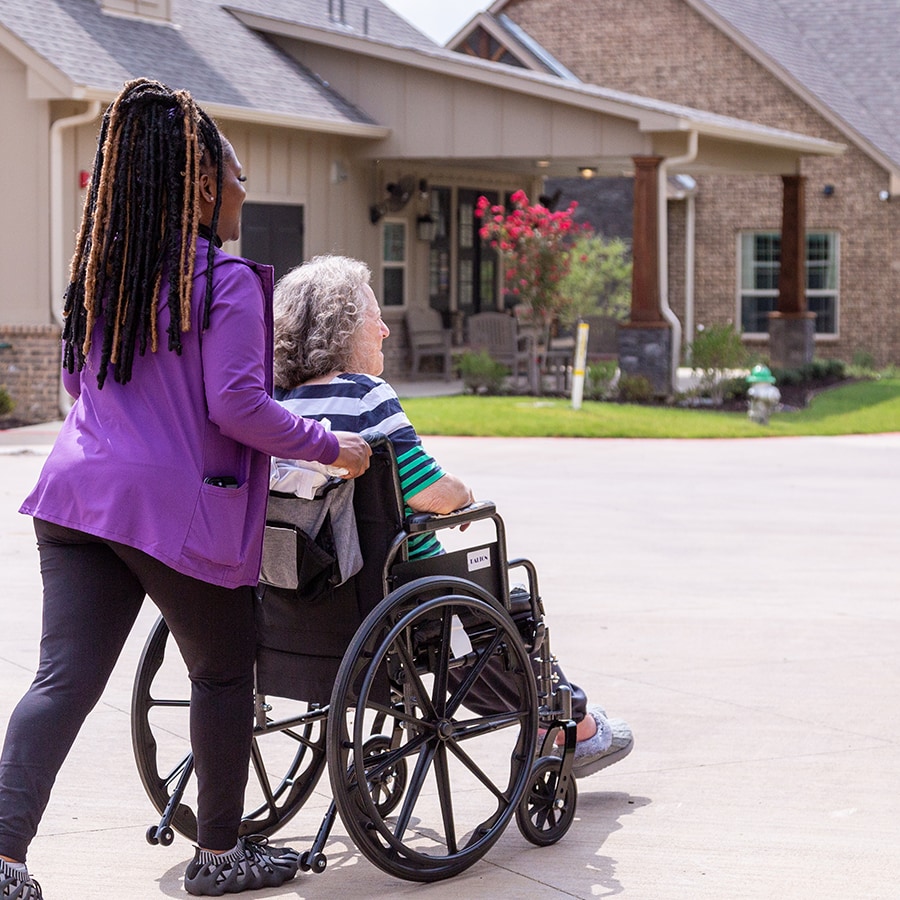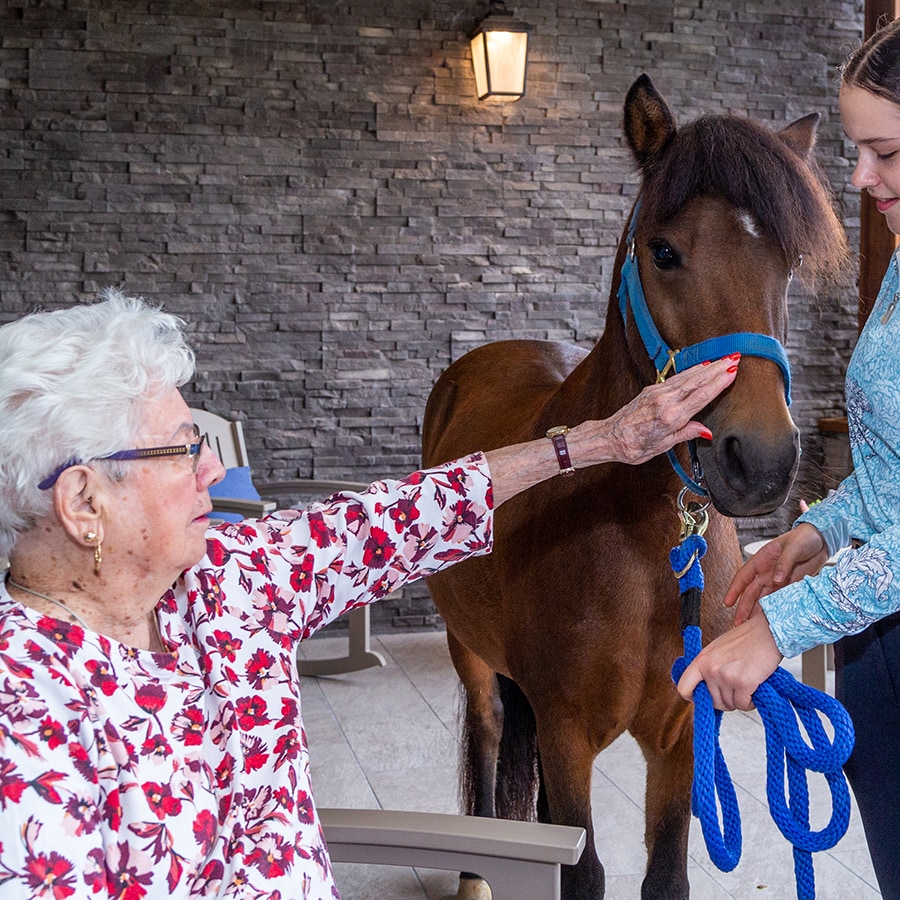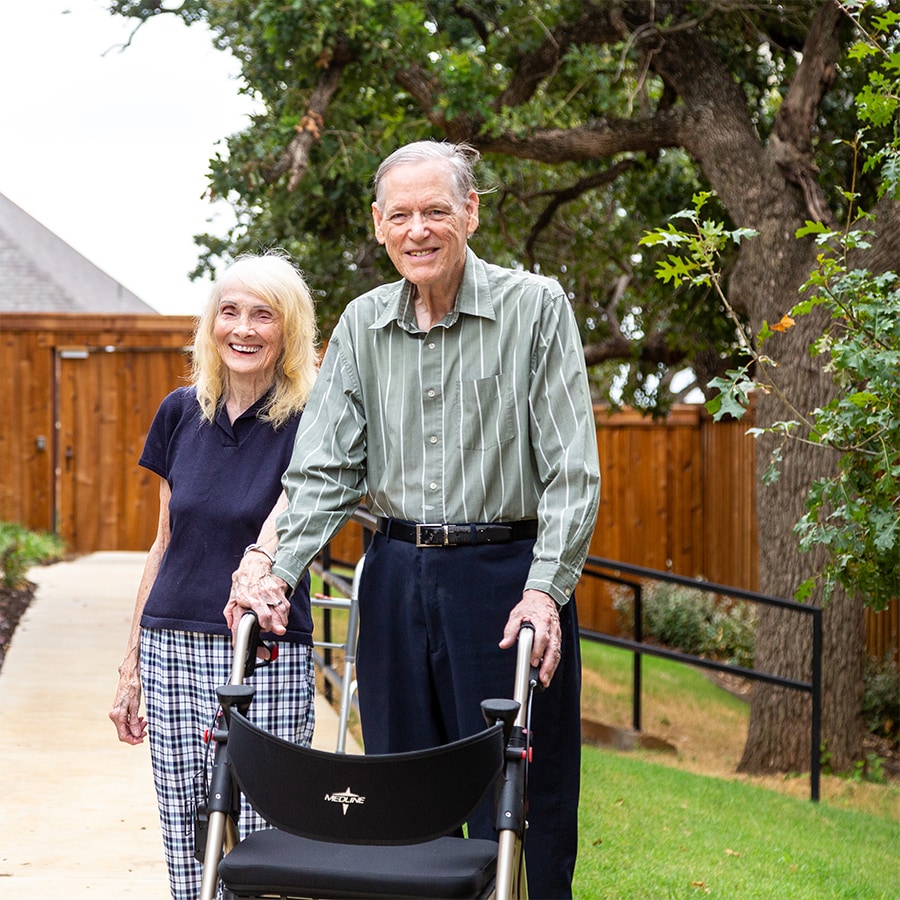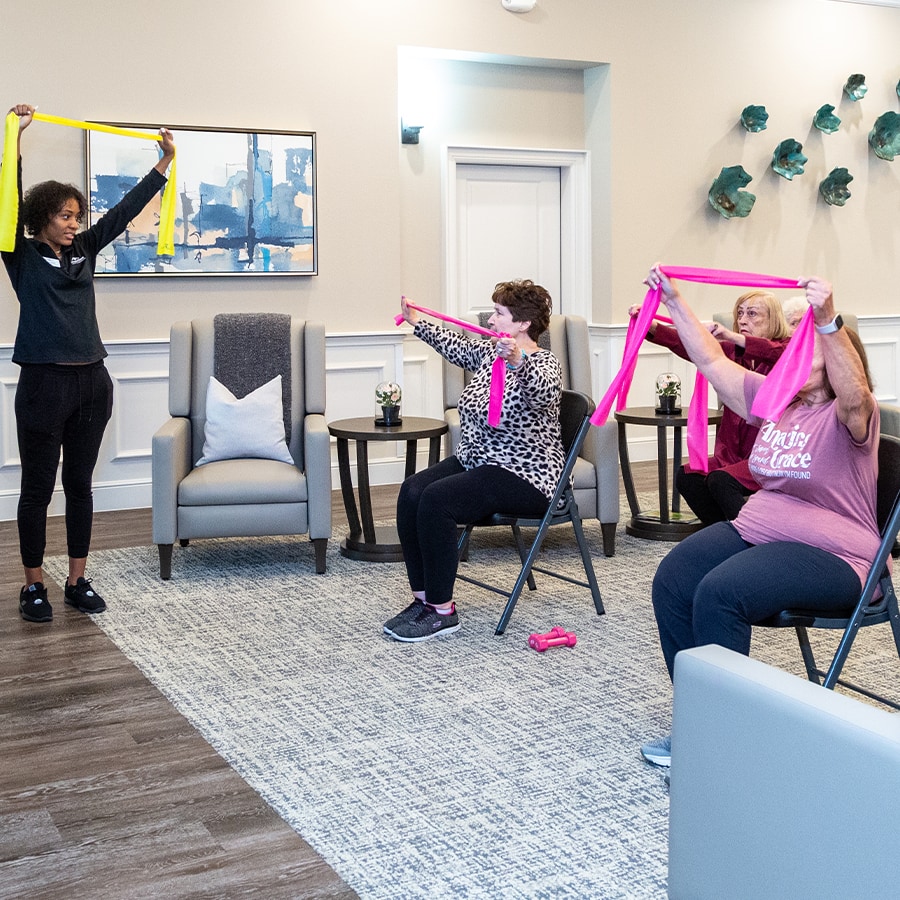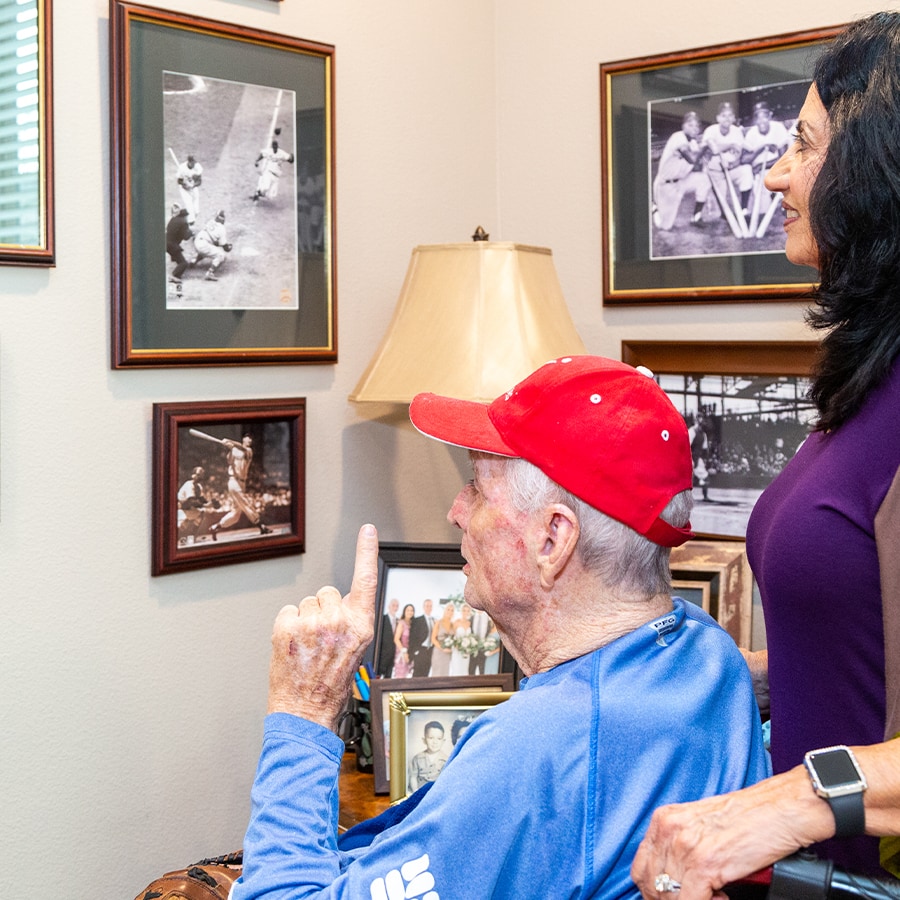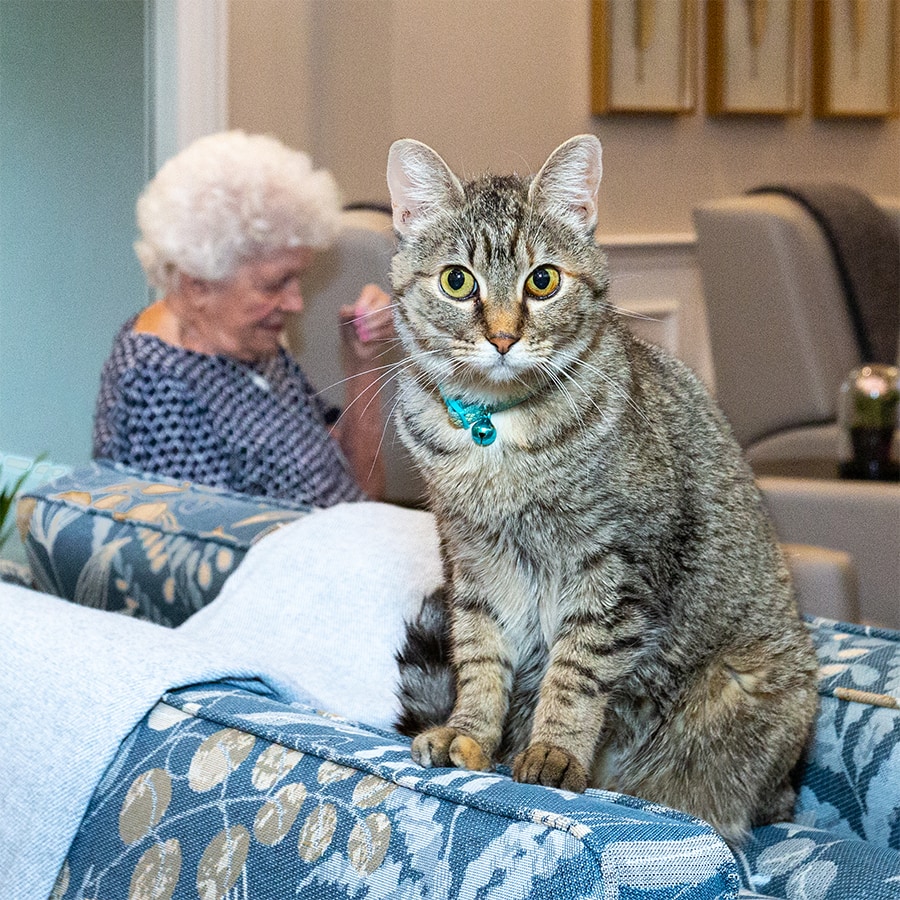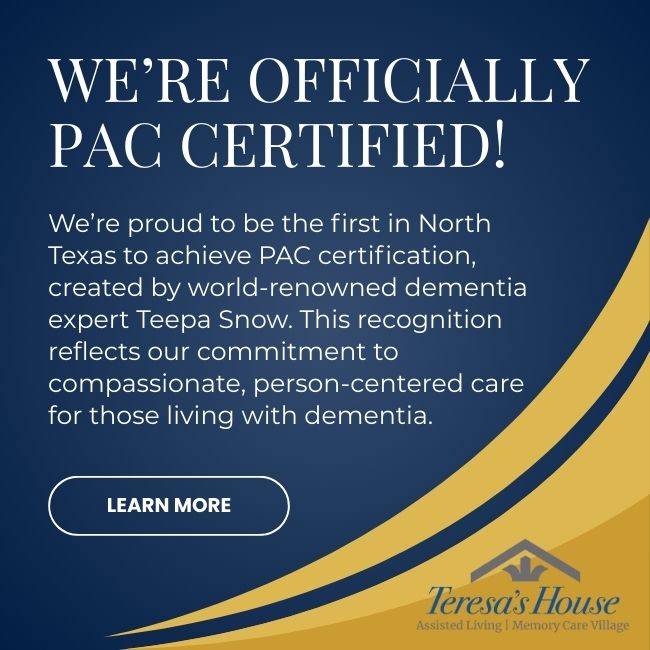Key Takeaways
- Personalized memory care activities help maintain cognitive function, encourage a sense of purpose, and reduce anxiety
- Physical movement, creative arts, and social connections provide meaningful engagement
- Familiar routines, purposeful tasks, and compassionate support help maintain independence and dignity
- Quality memory care communities can adapt activities to each resident’s changing needs and preferences
When cognitive decline affects your loved one, finding meaningful ways to stay engaged becomes more important than ever. You want activities that bring joy, maintain connections, and support their sense of purpose in a safe, caring environment.
Understanding early signs of cognitive changes can help you choose supportive, enriching activities earlier and adapt as their needs change.
Memory care activities provide structure, stimulation, and social connection that can significantly improve the quality of life for seniors living with dementia or other cognitive challenges.
A meaningful combination of physical movement, creative expression, and personalized programming helps residents feel valued while supporting their cognitive abilities at every stage of their journey.
Understanding How Activities Support Memory Care
Memory care activities do more than fill time—they create meaningful moments that can connect with long-term recall and established skills. When your loved one participates in familiar activities, their brain accesses pathways that remain strong even as cognitive function changes.
Personalized programming makes all the difference in memory care success. Activities tailored to your loved one’s background, interests, and current abilities help them feel confident and engaged rather than frustrated or confused.
Familiar routines provide comfort and security for residents experiencing memory challenges. Daily activities like morning exercises or afternoon crafts create a predictable structure that reduces anxiety and promotes independence.
Physical Activities and Movement Programs for Memory Care
Walking and Outdoor Exercise
Regular physical activity can help maintain and improve cognitive function in older adults.
Supervised walking groups offer gentle exercise and fresh air while maintaining safety. Many communities feature secure outdoor spaces where residents can enjoy nature walks, garden strolls, and birdwatching.
These outdoor experiences provide sensory stimulation through changing seasons, different textures, and natural sounds. Walking programs can be adapted for various mobility levels, enabling everyone to participate meaningfully.
Chair-Based Exercises and Gentle Movement
Chair yoga and tai chi movements help maintain flexibility and strength for residents with limited mobility. These gentle exercises focus on breathing, balance, and coordination.
Dance therapy combines music with movement, often triggering positive memories and encouraging social interaction. Simple movements to familiar songs can lift spirits and provide gentle physical activity.
Gardening and Hands-On Activities
Gardening offers multiple benefits, including maintaining physical health, improving memory, supporting mental well-being, and reducing stress levels.
Raised garden beds make gardening accessible for residents using wheelchairs or mobility aids. Planting flowers, watering plants, and harvesting vegetables connect residents with nature and provide purposeful activity.
Indoor herb gardens offer year-round gardening opportunities with the added benefit of familiar scents like basil, rosemary, and mint. These sensory experiences often trigger pleasant recall of cooking and family gatherings.
Creative Arts and Crafts Programs
Art Therapy and Expression Activities
Painting and drawing sessions welcome all skill levels, focusing on enjoyment rather than artistic technique. Art therapy provides emotional expression and creative stimulation while building confidence through personal accomplishment.
Collaging with family photos and magazine pictures creates personalized artwork that sparks conversations. These projects result in meaningful keepsakes that residents can display in their rooms.
Music Therapy and Sound Activities
Listening to favorite songs from their era often brings immediate recognition and joy, even for residents with advanced cognitive decline. Music connects with deep memory centers that remain active longer than other cognitive functions.
Sing-alongs and simple instrument activities encourage participation without pressure. Shaking maracas, ringing bells, or clapping along provides sensory engagement and social connection through shared musical experiences.
Specialized therapy programs often incorporate music as a therapeutic tool.
Hands-On Crafting Projects
Familiar activities like knitting and crocheting help residents feel productive and capable. These repetitive motions can be soothing and provide a sense of accomplishment as projects take shape.
Seasonal crafts and memory box creation offer opportunities for reminiscence and storytelling. Working with photographs, mementos, and familiar objects often triggers conversations about meaningful life experiences.
Social Connection and Community Activities
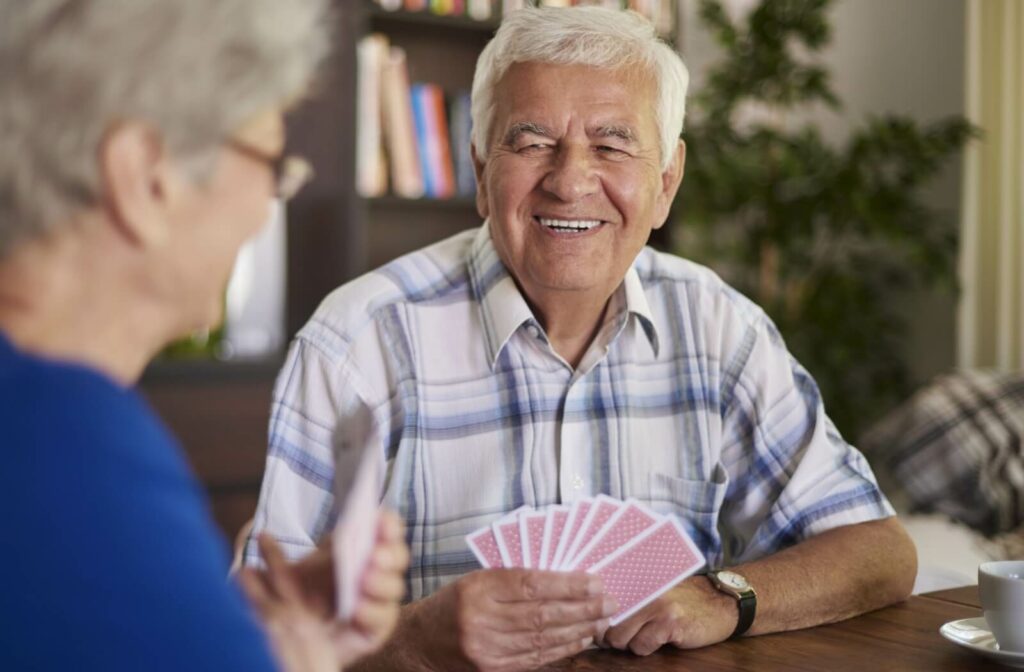
Group Games and Interactive Fun
Bingo nights and card games provide social interaction and gentle cognitive stimulation. These familiar activities often trigger reminisces of family gatherings and social events from earlier years.
Puzzle-solving as a group activity encourages teamwork and conversation. Large-piece puzzles with familiar images, like landscapes or animals, work well for varying cognitive abilities while promoting cooperation.
Cooking and Mealtime Experiences
Preparing family recipes connects residents with cultural traditions and personal history. The familiar scents and tastes of favorite foods often trigger positive memories and encourage social sharing.
Baking sessions fill common areas with comforting aromas, creating a homey atmosphere. Ice cream socials and coffee gatherings provide informal opportunities for residents to connect with each other and visiting family members.
Community dining experiences foster meaningful connections among residents.
Movie Nights and Entertainment
Classic films from their younger years often bring recognition and enjoyment, even when recent memory is affected. Musical movies and comedies are particularly engaging and uplifting.
Holiday celebrations and themed parties create special occasions that break up daily routines. These events often include multiple generations when families join the festivities, strengthening community bonds.
Meaningful Daily Living Activities
Productive Tasks That Bring Purpose
Folding laundry and sorting activities provide familiar, productive tasks that help maintain a sense of purpose and contribution to the community.
Light cleaning tasks and organizing supplies offer residents opportunities to engage in meaningful work they can safely perform independently. Setting tables for meals allows participation in daily routines that feel familiar and important.
Life Skills Stations and Familiar Settings
Office stations with familiar tools like typewriters recreate work environments from their careers. These stations provide opportunities for role-playing activities that connect with professional identities and skills.
Childcare stations with dolls and stuffed animals often appeal to residents with strong nurturing instincts. These stations can be comforting to older adults who have spent years caring for children and families.
Pet Therapy and Animal Interactions
Visiting therapy dogs and cats provide unconditional affection and tactile stimulation. Animal interactions often bring smiles and conversation, even from residents who rarely speak with people.
Fish tanks offer calming visual stimulation and opportunities for residents to participate in feeding routines. Robotic pets provide ongoing companionship for residents who may have difficulty caring for live animals.
Finding the Right Memory Care Community for Your Loved One
When evaluating memory care options, look for communities that offer diverse activity calendars designed specifically for cognitive support. Ask about how the community personalizes programs for individual interests and abilities.
Quality communities should demonstrate how their memory care approach creates small, intimate settings that feel like home. Look for programs that include family input in activity planning and offer ways for you to stay connected with your loved one.
At Teresa’s House at Craig Ranch in McKinney, our memory care programming focuses on fostering meaningful connections and engaging in purposeful activities.
Schedule a tour to see how our personalized approach and intimate community settings can provide the warm, supportive care your loved one deserves.
